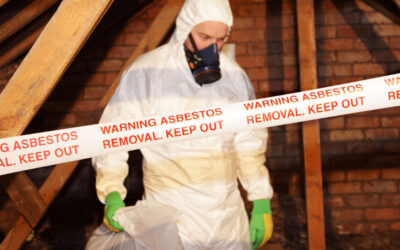As wildfires become more frequent and severe, especially in regions like the Pacific Northwest, understanding the health impacts of wildfire smoke is crucial. Wildfire smoke is a complex mixture of gases and fine particles from burning trees, plants, buildings, and other materials. These particles can penetrate deep into the lungs and even enter the bloodstream, leading to a range of health issues. In this blog post, we will explore the health effects of inhaling wildfire smoke, with a focus on vulnerable populations such as children, the elderly, and individuals with respiratory conditions. We will also discuss both short-term and long-term health consequences.
The Composition of Wildfire Smoke
Wildfire smoke contains:
- Particulate Matter (PM2.5 and PM10): These fine particles are the most concerning component of wildfire smoke due to their ability to reach the deepest parts of the lungs.
- Carbon Monoxide: A colorless, odorless gas that can cause harmful health effects by reducing oxygen delivery to the body’s organs.
- Volatile Organic Compounds (VOCs): These can include harmful chemicals like benzene and formaldehyde.
- Other Pollutants: Including nitrogen oxides and polycyclic aromatic hydrocarbons (PAHs), which are known to have toxic effects.
Health Effects of Inhaling Wildfire Smoke
Short-Term Health Consequences and Respiratory Symptoms:
- Irritation: Exposure to wildfire smoke can cause irritation of the eyes, nose, and throat. Symptoms include coughing, sore throat, runny nose, and watery eyes.
- Exacerbation of Asthma and COPD: Individuals with asthma or chronic obstructive pulmonary disease (COPD) may experience worsening symptoms, including difficulty breathing, wheezing, and chest tightness.
- Shortness of Breath: Even healthy individuals may find it difficult to breathe deeply or feel short of breath when exposed to high levels of smoke.
Cardiovascular Effects:
- Increased Heart Rate: Exposure to fine particulate matter can increase heart rate and blood pressure, putting additional strain on the heart.
- Heart Attacks: There is evidence that short-term exposure to high levels of particulate matter can increase the risk of heart attacks.
Long-Term Health Consequences
Lung Function:
- Chronic Respiratory Conditions: Repeated exposure to wildfire smoke can contribute to the development of chronic respiratory conditions, such as chronic bronchitis.
- Reduced Lung Function: Long-term exposure to particulate matter can lead to reduced lung function over time, particularly in children whose lungs are still developing.
Cardiovascular Health:
- Increased Risk of Cardiovascular Disease: Long-term exposure to particulate matter is associated with an increased risk of cardiovascular diseases, including hypertension, heart disease, and stroke.
Cancer Risk:
- Lung Cancer: Some of the chemicals found in wildfire smoke, such as benzene and PAHs, are known carcinogens. Long-term exposure to these substances can increase the risk of developing lung cancer.
Vulnerable Populations
Children:
- Developing Lungs: Children’s lungs are still developing, making them more susceptible to damage from pollutants.
- Higher Exposure: Children breathe more air per pound of body weight than adults, increasing their exposure to harmful particles.
Elderly:
- Preexisting Conditions: Older adults are more likely to have preexisting health conditions that can be exacerbated by smoke exposure.
- Weaker Immune Systems: The elderly often have weaker immune systems, making it harder for their bodies to repair damage caused by pollutants.
Individuals with Respiratory Conditions:
- Increased Sensitivity: People with asthma, COPD, and other respiratory conditions are particularly sensitive to smoke and can experience severe symptoms even with low levels of exposure.
- Higher Risk of Complications: These individuals are at a higher risk of developing severe complications, such as respiratory failure.
Mitigating the Health Impacts
To protect yourself and your loved ones from the harmful effects of wildfire smoke:
- Stay Indoors: Keep windows and doors closed, and use air purifiers to maintain indoor air quality.
- Avoid Strenuous Activity: Limit physical activity, especially outdoors, to reduce the amount of smoke you inhale.
- Use Masks: N95 respirators can filter out fine particles and provide protection if you need to be outside.
- Monitor Air Quality: Stay informed about air quality levels in your area and take precautions when levels are high.
Clean Up Your Home Air
One effective way to ensure your indoor air remains clean and safe during wildfire season is by using an air purifier. Clean up your home air with an Aspen Air Purifier. Aspen Air Purifiers are designed to remove harmful particles and pollutants from the air, providing a healthier living environment for you and your family. Wildfire smoke poses significant health risks, especially to vulnerable populations. By understanding these risks and taking steps to protect ourselves, we can mitigate the harmful effects and safeguard our health during wildfire season.
Discover how you can enhance air quality and safeguard your home—click here to learn more and take action today.


